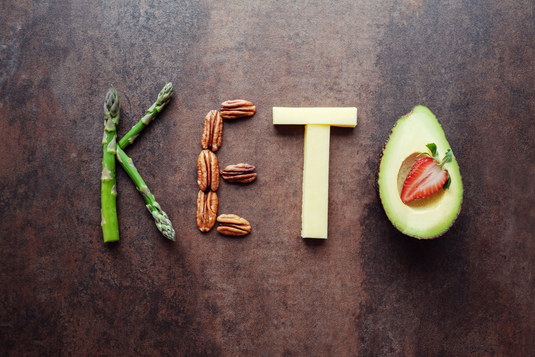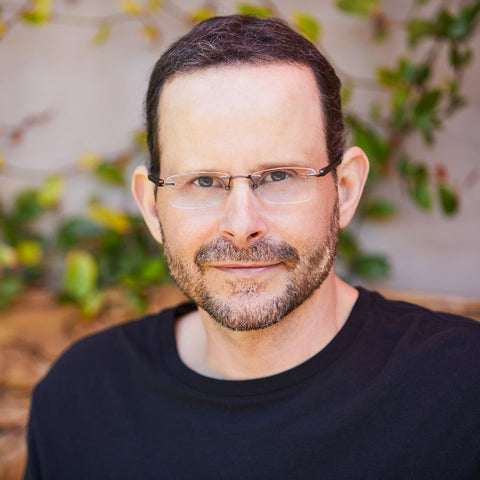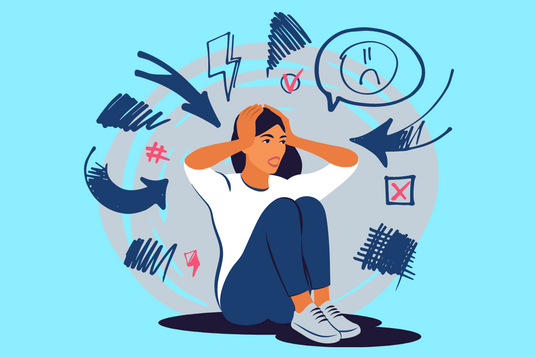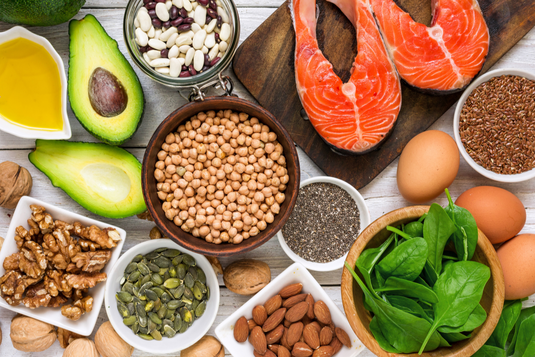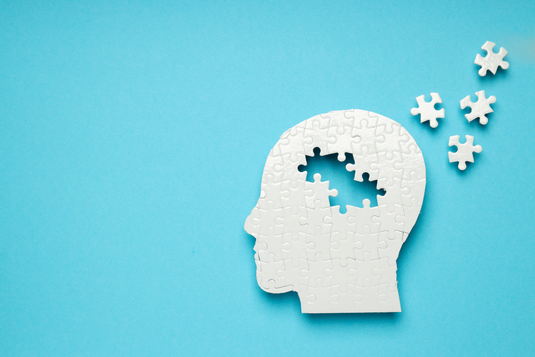If you're familiar with today's fad diets, you've probably come across at least one that focuses on getting more protein and keeping carbs to a minimum. The truth is, there are many high-protein, low-carb diets that have become fashionable over the past few decades. The recently hyped ketogenic diet is just one of the latest interpretations of the high-protein, low-carbohydrate diet trend that began in the 1970s. While some benefits can be derived from any diet that eliminates processed foods, these diets are limited when it comes to healing the body. In fact, this way of eating is just as misinformed and nearly as harmful as it was when it first started decades ago. You may have read or heard that high-protein, low-carb diets are beneficial, but today we're going to share with you why Anthony William sees them as problematic, especially for people with chronic health conditions or symptoms.
Following a keto diet is bad for your body and brain, whether you started an animal-based or plant-based keto diet. Some people experience temporary relief or weight loss on the keto diet, but it's important to understand that these improvements are short-lived. Especially if you suffer from a chronic illness, autoimmune disease, neurological conditions, or mysterious symptoms, you'll want to avoid anything related to the keto diet.
For a complete understanding of what your body really needs for healing and long-term health, read Anthony William's book Liver Help .
The flaws in the keto diet theory
The whole premise of the keto diet is flawed to begin with. The diet involves limiting carbohydrate intake while emphasizing high protein and fat intake. The theory is that this way of eating causes your body to enter a metabolic state called ketosis, where you effectively burn fat as a source of energy for your body and brain.
In reality, it is not possible for your body to go into ketosis if you ingest any amount or form of sugar, including the natural sugars found in most foods. This means that anyone who consumes even a small amount of nuts, seeds, avocados, cheese, butter, tomatoes or green juices is taking in natural sugar. Unless someone is eating nothing but bacon three times a day (in which case they'll feel terrible and do even more damage to themselves), they don't go into ketosis.
The idea that your body can switch to burning fat for fuel is also wrong. We don't eat fat. We are working with glucose, which is sugar. If it were true that our bodies could switch from burning glucose for energy to burning fat for energy, as the keto diet suggests, then it would be impossible for an overweight or obese person to starve. If the ketosis theory is true, you could completely deprive an overweight person of food and they would continue to live for a long period of time using their fat for energy. But that's not how it works. Fat does not turn into usable material for our bodies.
Any person of any weight can starve or be malnourished without the glucose and nutrients their body needs—ie. without the glucose and nutrients that are abundant in carbohydrates such as fruits and starchy vegetables, and without the nutrients found in green leafy vegetables and herbs. These are the so-called CFCs, which is an abbreviation of "critical clean carbohydrates". Anthony William explains in detail why these foods are necessary, beneficial and healing in his book "Liver Help" and shares how dozens of foods from the BCH category bring healing to the body.
The ancient roots of high-protein, low-carb diets
To everyone's detriment, the world has become anti-sugar and anti-carb. Avoiding starchy fruits and vegetables robs people of their ability to heal. How did we get here? The answer requires a brief history lesson. In the early 1930s, the meat industry and governments joined forces to promote proteins. At that time, instead of going to the farmer and the butcher for meat, animal products were industrialized. They are becoming cheap and widely available. They are promoted as extremely important. Monetary interests are placed above people's health.
The idea that protein is more important than anything else has been pushed through the partnership of industry and governments. This belief is indoctrinated into the conventional medical model and taught in high schools. It gets planted in everyone's thinking and consciousness (and stays there for decades to come).
Prior to this conspiracy to impose protein, medical practitioners did not focus on protein and meat. Proteins were not the primary choice for sustaining humans. Alternative doctors and healers believe mostly in fruits, green leafy vegetables, vegetables, herbs, potatoes, nuts and seeds. And although they weren't focused on protein, the reality is that everything you eat has some protein in it. It is found in spinach, berries, and bananas. It's everywhere. However, unsubstantiated but calculated decisions to promote intensive protein intake continue to influence and confuse our thinking today.
You aim for the fat… and miss
Health professionals have always been in search of the best diet. In the 1970s, doctors saw increases in heart disease, high blood pressure, liver disease, cholesterol, and diabetes. People cut out fast foods, processed foods, and fatty foods, but still continue to experience all kinds of symptoms and conditions. In the 1970s, doctors and the medical system correctly recognized that too much fat, too much animal products, and too much red meat contributed to disease.
All this fat intake leads to higher fat content in the blood, which leads to a lack of oxygen in the blood. Over time, reduced levels of oxygen reaching the heart and brain contribute to problems such as strokes and heart attacks. Too much fat in the blood also causes the adrenal glands to shoot adrenaline as they try to clean your blood to protect you.
Unfortunately, awareness of the harmful effects of fat on our health has not led to an effective response. Instead, store shelves have been filled with low-fat and fat-free products (which often contain unhealthy, processed ingredients or trans fats). People are starting to eliminate fats that actually have healthy properties, such as coconut oil, avocados, nuts, seeds and olives. In addition, people continue to consume a lot of animal protein. People don't realize that animal protein turns into animal fat, which means they're still eating a high-fat diet even if they think they're "lean." They still consume too much fat—and often worse kinds of fat than before—on their low-fat diets.
With this flawed approach, any progress that might have been made crumbled. Health professionals are realizing that the low-fat diet trend isn't working. In the end, the only thing left to do (since proteins remained untouchable due to the plans and money behind them) was to turn to carbohydrates. This is how the keto diet was born.
Since then, fad versions of low-carbohydrate and high-protein diets have appeared one after another. Over the decades, the same concept has been repackaged under different names, with just a slight twist, to market itself as its own unique diet program. One thing that has changed slightly is that today's high protein diets have a bit more carbohydrates. Modern options allow for some green leafy vegetables, some avocado, or a few fruits and nuts. This is because the older versions that do not allow any of these healing foods destroy people's health. Our bodies and brains need the nutrients, antioxidants, phytochemicals, vitamins and minerals found in green leafy vegetables, fruits, berries, vegetables, coconut water and raw honey. Adding these healing foods to today's high protein, low carb trends makes these diets a little less harmful.
Why the Keto Diet Can Work (Partly, Temporarily, Sometimes)
When people commit to almost any diet, including a high-protein, low-carb diet like keto, they cut out all the worst foods. They eliminate fast foods, fatty foods, processed foods, and refined sugar. They clean out some things and remove some toxins, which gives their body a little respite.
The real cause of most chronic health conditions and symptoms, including weight gain, are what Anthony William calls pests. In Liver Help he explains more about these pests: viruses, bacteria, toxic heavy metals and man-made chemicals. ( You can find a series of articles about all the pests on our blog. ) They have all proliferated since the industrial revolution and are making people sicker than ever at younger and younger ages. Your liver works extremely hard to capture and filter out troublemakers, but its work is becoming more and more demanding.
High-fat, high-protein diets are a huge burden on the liver, which is already working overtime to deal with toxins. Consider how fat and sugar usually go together: doughnuts, cakes and cookies; pasta with butter; Asian food with sesame or peanut butter; fatty ribs with barbecue sauce; even peanut butter and jelly sandwiches. People don't consume much sugar on its own. No one eats only sugar products. However, in recent years, sugar has become the scapegoat for health problems, while the fats that go hand in hand with it have been neglected.
Instead of simply eliminating unhealthy, refined sugars, the fear has gone too far and people have become fearful of the healthy natural sugars in starchy fruits and vegetables. Now people cut out all the sugars and keep it high in fat and protein. They certainly see some relief in eliminating refined sugar because it is one of the causes of problems in the body. For example, when people eliminate sugars, they will see that A1C levels can go down or diabetes and pre-diabetes can improve. But this does not solve the problem completely. ( For more on this topic, see Anthony William's Tips for Type 2 Diabetes and Hypoglycemia . )
Too much fat in the blood is a big problem. When there is too much fat in the blood, the body tries to get rid of the sugar. It tries to move sugar into the cells because your cells need sugar to survive. But it can't do this well because fat blocks sugar from entering the cells. Then your body produces more insulin and you develop insulin resistance. Sugar gets stuck in the bloodstream, insulin resistance sets in, A1C levels rise and the liver becomes sluggish.
So this improvement seen when someone cuts out sugar is a smoke screen for the real problem. The moment they put sugar back in, their problems return. That's because sugar was never the problem in the first place. The real problem for chronic disease, diabetes, blood sugar problems and weight gain is a sluggish, fatty, tired liver that is overloaded with pathogens and toxins. If you would like to learn more about these conditions, as well as guidance on how to heal yourself, read Anthony William's book Liver Help .
Another problem with the keto diet: intermittent fasting
People tend to do intermittent fasting when on a keto diet. This is because they feel better. They feel better because eating fat and protein all day long ends up making you feel awful, like you're falling apart. With all that fat clogging up circulation and reducing blood oxygen levels, your organs and cells can't get the oxygen they need. Fasting offers relief compared to the alternative of eating more fat and protein. So people often start intermittent fasting, replenishing their depleted energy levels with caffeine, coffee and chocolate to get them through the day.
Of course, this is also harmful. Getting caffeine into the body floods the system with adrenaline. Adrenaline is corrosive and that's one more thing the liver has to absorb and try to filter out. People who eat a lot of fat and consume a lot of caffeine at the same time will unfortunately end up getting sicker and sicker.
If someone temporarily feels better eating an animal-based keto diet with multiple meals a day, it will be due to the adrenaline naturally contained in animal foods, in addition to eliminating the processed foods they may have been eating. , which he eats, and which can make someone feel better temporarily. But this is not true healing, but a mask of how they would really feel without that adrenaline rush. Eventually, the person will begin to feel worse and worse.
Sustainable healing that works
Now that you know the truth about the keto diet and high-protein, low-carb diets in general, it's important to educate yourself on what your body really needs to heal and thrive. You may not think that you have any problems with your liver, but the truth is that 9 out of 10 people currently have some degree of overloaded liver and if you have any symptom or condition, such as acne , eczema , migraines, cold sores , fatigue , vision problems, digestive problems or otherwise, it means your liver needs your help. You will find all the information you need in Anthony William's book Help for the Liver .
